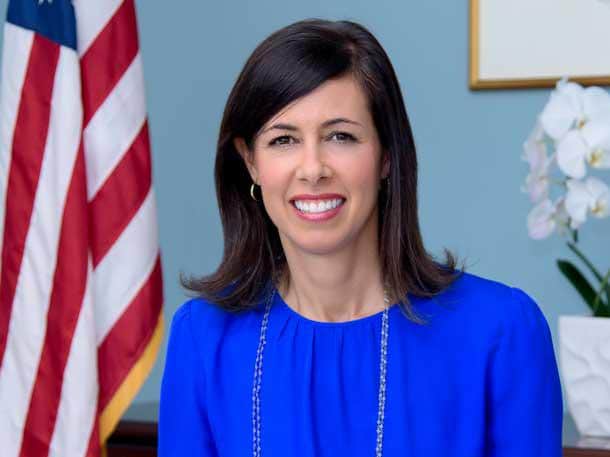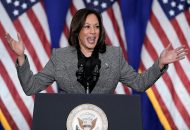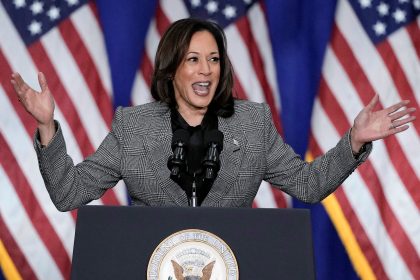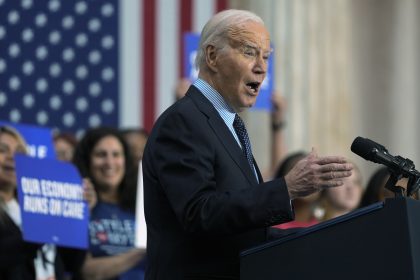FCC Considers Three Proposed Rule Changes

WASHINGTON — The Federal Communication Commission hosted an opening meeting on Wednesday to consider proposed rule changes to the Emergency Alert System, E-Rate program and spectrum sharing for low-earth orbit satellite systems.
The meeting was attended by FCC Chairwoman Jessica Rosenworcel, Secretary Marlene Dortch and Commissioners Nathan Simington, Brendan Carr and Geoffrey Starks, as well as representatives from the different industry sectors affected by the rulemaking changes. The FCC officials considered the three proposed changes to its rulemaking and outlined the goals associated with each of the revisions.
Proposed changes to the rules regarding the nationwide Emergency Alert System were considered in an effort to improve the system’s overall functionality and accessibility of visual messages for individuals who are deaf or hard of hearing. The changes would require EAS participants to use a preset script as the visual message for broadcast-based alerts and would revise some of the terminology defined for the nationwide EAS test event code.
Instead of using the “National Periodic Test” event code, the officials suggested the term be changed to “Nationwide Test of the Emergency Alert System” to improve the clarity of the formatted visual message for its “Common Alerting Protocol.” When EAS warnings are broadcast by the system’s participants, they feature both a recorded message and a text crawl—although the audio component of the message may not always match the visual text because of the legacy television architecture of the alert system.
Rosenworcel specifically referenced the deadly tornadoes that tore across Arkansas, Illinois, Kentucky, Mississippi, Missouri, and Tennessee on Friday in a written statement accompanying the notice of proposed rulemaking. In the statement, Rosenworcel said it was the FCC’s responsibility to improve the warning systems in place as much as possible in instances of natural disasters.
“When we send out these potentially life-saving emergency alerts it is vital that as many Americans as possible have the opportunity to receive that critical information in a timely manner,” Carr said during the meeting. “That obviously includes those in the disability community as well, so I’m very pleased to vote in favor of this item.”
The FCC’s order on revising spectrum sharing rules for fixed satellites in non-geostationary orbit came about from a petition filed by Space Exploration Holdings, LLC, or SpaceX. The proposals in SpaceX’s petition related to spectrum-selection priority for satellites that travel closer to Earth than traditional low- and medium-orbit satellite constellations, like the ones the company is using to deploy its satellite internet constellation known as Starlink.
Spectrum sharing is the process of optimizing wireless systems of communication by allowing multiple categories of users to share the same bands of frequencies, according to the National Institute of Standards and Technology. SpaceX petitioned the FCC to increase certainty in spectrum sharing obligations for satellites to provide low-latency broadband internet to its customers worldwide, including in deeply remote regions where internet access is uncommon.
In June, the GSMA, or Global System for Mobile Communications Association, published public policy position recommendations that included support for spectrum sharing as a means to bolster customers’ access to mobile services. The FCC has seen a significant uptick in applications for satellite systems licenses and its notice of proposed rulemaking includes a 60-day comment period for stakeholders to provide input.
“The last few years have seen a transformation in the American space sector,” Starks said during the meeting. “So far this year, the United States has launched nearly 50 missions to place satellites in Earth-orbit or deep space. Satellite imaging and sensing companies are helping governments, commercial actors and other organizations assess how our planet is experiencing conditions ranging from climate change to the spread of COVID-19. Non-geostationary fixed satellite services are beginning to bridge the digital divide.”
Starks continued, “Commission policies must keep pace with these changes to encourage innovation while preserving a level playing field between encumbrance and new entrance.”
The last item considered by the FCC officials during the meeting pertained to the commission’s E-Rate program, which helps schools and libraries obtain affordable telecommunications and broadband services. An audit conducted by the Government Accountability Office last year unveiled the possibility for applicants and service providers to misrepresent compliance with competitive bidding requirements under the program which present underlying fraud risks.
Further, the Office of Inspector General recommended safeguards in response to the GAO audit, such as establishing a central repository for submissions of competitive bidding documents. OIG also recommended the institution of a holding period in order to ensure bids are not released to applicants until after the closing of a 28-day bidding window.
The FCC responded by proposing changes to the E-Rate program that would modernize program requirements for applicants and service providers through the implementation of a central document repository or bidding portal. Service providers would be required to submit E-Rate program bids to the Universal Service Administrative Company rather than directly to applicants under the FCC’s proposed changes.
“The FCC spends billions of dollars a year on the E-Rate program,” Simington said during the meeting. “While most of that money is spent legally and according to rules, we have uncovered troubling cases of defective bidding programs and even outright fraud. These discovered cases may only be the tip of the iceberg… as for the concern some have expressed, I’m also satisfied with the notice asking the right question to make sure the resulting order does not harm the ability of E-Rate applicants and providers to effectively use these funds.”
The full details of the FCC’s proposed changes to the E-Rate program were published on Thursday. All three of the proposed initiatives were approved by the commissioners and will be subject to public comment periods prior to their adoption.
Reece can be reached at [email protected].






















